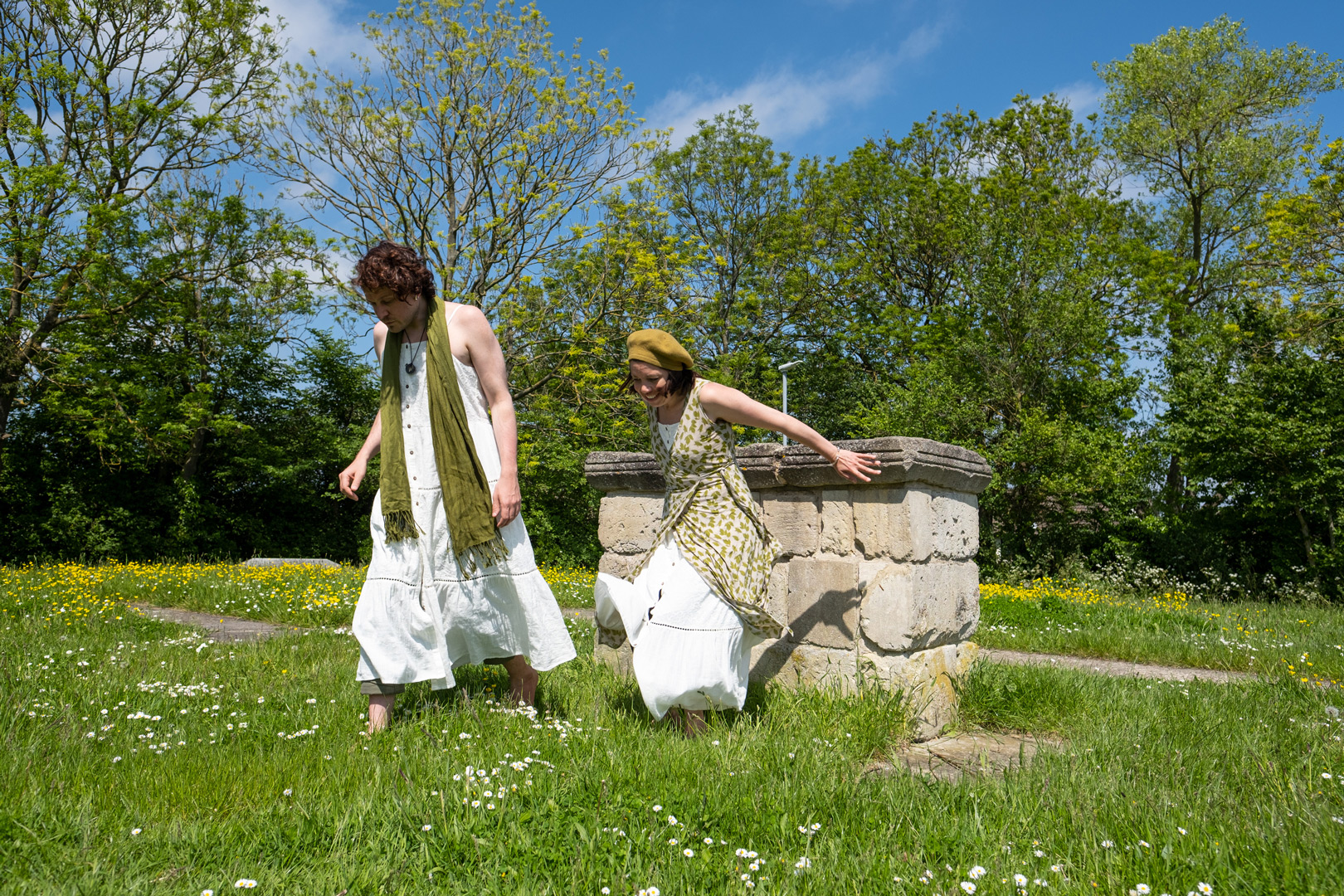The George Butterworth Award is a prize of £1,500 given annually to a UK-based composer for the creation of an outstanding new work developed through one of our artist development Programmes in the previous calendar year. Originally the George Butterworth Award was awarded by the Society for the Promotion of New Music annually between 1993 and 2008 – it has since been incorporated into Sound and Music.
Due to the Covid-19 pandemic, no Award was made in 2021. In 2022, two Butterworth Awards (both of £1,500) are being awarded. Both awardees receive the title of ‘George Butterworth Award 2022 winner’ whether their work was premiered in 2020 or 2021.
Read our Q+A with Lunatraktors about their award-winning project below.
Tell us about your piece – how did it come about, what was the creative process like?
Lunatraktors is a collaboration between artist, choreographer and percussionist Carli Jefferson (she/her), and artist, vocalist and researcher Clair Le Couteur (they/them). The project started in 2017 with the post-apocalyptic question: what’s left when we’ve lost everything? Stripping folk song down to the bare bones, Lunatraktors’ ‘broken folk’ blends Le Couteur’s self-taught overtones and four-octave range with the hybrid of tap dance, flamenco and body percussion that Jefferson developed after touring with STOMP (2001-2004).
Now the Time is an original work composed in the folk tradition. It is an act of mourning for silenced voices and stories, attempting to transform erasure and violence into acceptance, transcendence and power. The song addresses the gaps in the folk music archive where trans and queer stories should be. It is composed in relation to Anglo–Irish folk traditions – particularly the neglected body of British folk songs in 5/4 time, sean-nós and keening – and to our study of flamenco.
Overtone singing allows one voice to produce multiple tones, queering the highly gendered expectations of vocal range. When two overtone singers work in close harmony in a reverberant space, eerie and unexpected ‘lost voices’ appear as if by magic. We recorded the piece ourselves in Margate Theatre Royal, Britain’s second oldest working theatre.
Stamping and clapping breaks silence. Inarticulate somatic traumas of rage, pain, anxiety and grief can be expressed as uplifting, powerful, energetic forces. With two body percussionists, a vast potential polyrhythmic space is produced. We sing Now The Time to generate a protective space of reflection and acceptance, a refuge from endless cycles of inward self-erasure / self-harm versus outward aggression / blame.
What does winning the George Butterworth Award mean to you?
Winning the George Butterworth Award means so much to us. Butterworth was a key figure in the recording and development of British folk music, and its relationship to the classical tradition. We share many of the same passions, but have not had formal musical education; this award helps us to feel accepted and valued, part of something greater than ourselves. The award also allows us to invest in ourselves, providing some financial help to take time to develop new experimental works. This is especially vital at a time of great uncertainty and hardship for the arts. Another wonderful outcome is that Margate Theatre Royal is using our BMC commission video to promote its staff-led fundraising drive, to help keep Britain’s second-oldest working theatre alive.
How did winning a BMC commission impact on you as composers?
The BMC commission has had a hugely positive effect on our confidence, sense of achievement and recognition. ‘Now the Time’ is dedicated to all our queer and trans forebears whose lives, songs and stories have been lost to violence, and erased from cultural memory. The commission gave us the budget to develop this piece and record a performance in a really resonant location. Being selected for the LGBTQ+ Composers Award has given us the confidence to begin describing ourselves as composers, despite not having had formal training.
Read our Q+A with the other award winner – Eunseog Lee, for his piece The Babylon Cycle – here
The George Butterworth Memorial Fund was established in 1921 by the composer’s family, together with initial trustees including Ralph Vaughan Williams and George Dyson. It was funded by income from the estate of the composer himself who was tragically killed on the Somme during the First World War, having been awarded the Military Cross.


